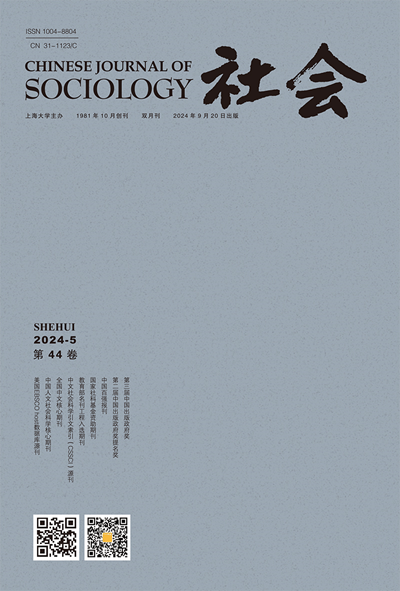身份的障碍:人口多样性、社会信任和犯罪
IF 1.8
4区 社会学
Q2 SOCIOLOGY
引用次数: 1
摘要
本文基于2014年中国劳动力动态调查数据,构建人口多样性指数来检验人口多样性对犯罪率的影响。结果表明,人口多样性是城市犯罪率上升的原因之一。考虑了内生性问题,并从不同角度检验了稳健性,结论保持不变。中介检验结果表明,社会信任是一个重要的中介变量,即当社会信任水平较低时,人口多样性导致犯罪率上升。此外,研究结果还表明,当产权保护更完善、人们对法院系统更有信心、政府在教育和社会保障方面的投入更多时,人口多样性对犯罪的影响要弱得多。这表明,较好的制度可以在某种程度上取代非市场力量的作用,从而遏制人口多样性对犯罪率的负面影响。它还表明,公共支出可以通过增加犯罪的机会成本来降低犯罪的可能性。本文为中国政府的犯罪控制政策提供了有价值的经验证据。各级政府应充分重视文化差异对治理的不利影响,促进不同群体文化的相互认同和融合。本文章由计算机程序翻译,如有差异,请以英文原文为准。
The barriers of identity: Population diversity, social trust, and crime
Based on the 2014 China Labor-force Dynamics Survey data, this paper constructs a population diversity index to test the impact of population diversity on crime rates. The results suggest that population diversity is one of the causes of increasing urban crime. After considering the endogeneity problem and testing the robustness from different perspectives, the conclusion remains unchanged. The results of mediation tests indicate that social trust is an important mediator variable, that is, population diversity leads to an increase of crime rate when the level of social trust is low. Moreover, the results also show that the impact of population diversity on crime is much weaker when property rights protections are more complete, people have more confidence in the court system, and the government spends more on education and social security. This shows that better institutions can, to some extent, replace the role of non-market forces, thereby curbing the negative impact of population diversity on crime rates. It also suggests that public expenditure can reduce the likelihood of crime by increasing the opportunity cost of crime. This paper provides empirical evidence valuable to government crime control policies in China. Governments at all levels should pay full attention to the adverse effects of cultural differences in governance and promote mutual cultural recognition and integration of different groups.
求助全文
通过发布文献求助,成功后即可免费获取论文全文。
去求助
来源期刊

社会
Social Sciences-Social Sciences (all)
CiteScore
1.70
自引率
0.00%
发文量
6799
期刊介绍:
The Chinese Journal of Sociology is a peer reviewed, international journal with the following standards: 1. The purpose of the Journal is to publish (in the English language) articles, reviews and scholarly comment which have been judged worthy of publication by appropriate specialists and accepted by the University on studies relating to sociology. 2. The Journal will be international in the sense that it will seek, wherever possible, to publish material from authors with an international reputation and articles that are of interest to an international audience. 3. In pursuit of the above the journal shall: (i) draw on and include high quality work from the international community . The Journal shall include work representing the major areas of interest in sociology. (ii) avoid bias in favour of the interests of particular schools or directions of research or particular political or narrow disciplinary objectives to the exclusion of others; (iii) ensure that articles are written in a terminology and style which makes them intelligible, not merely within the context of a particular discipline or abstract mode, but across the domain of relevant disciplines.
 求助内容:
求助内容: 应助结果提醒方式:
应助结果提醒方式:


